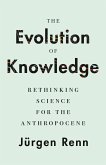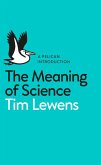In this first volume Bernal discusses the nature and method of science before describing its emergence in the Stone Age, its full formation by the Greeks and its continuing growth (probably influenced from China) under Christendom and Islam in the Middle Ages.
Andrew Brown, Bernal's biographer, with a nice sense of paradox, has said of him, he 'was steeped in history, in part because he was always thinking about the future.' He goes on to say, 'Science in History is an encyclopaedic, yet individual and colourful account of the emergence of science from pre-historic times. There is detailed coverage of the scientific revolution of the Enlightenment, the Industrial Age and the first two-thirds of the twentieth century. . . The writing flows and is devoid of the tortured idioms that mar so many academic histories of science. After reading it, it is easy to agree with C. P. Snow's orotund observation that Bernal was the last man to know science.
Faber Finds are reissuing the illustrated four volume edition first published by Penguin in 1969. The four volumes are: Volume 1: The Emergence of Science, Volume 2: The Scientific and Industrial Revolutions, Volume 3: The Natural Sciences in Our Time, Volume 4: The Social Sciences: Conclusion.
'This stupendous work . . . is a magnificent synoptic view of the rise of science and its impact on society which leaves the reader awe-struck by Professor Bernal's encyclopaedic knowledge and historical sweep.' Times Literary Supplement
Dieser Download kann aus rechtlichen Gründen nur mit Rechnungsadresse in A, B, BG, CY, CZ, D, DK, EW, E, FIN, F, GR, H, IRL, I, LT, L, LR, M, NL, PL, P, R, S, SLO, SK ausgeliefert werden.









